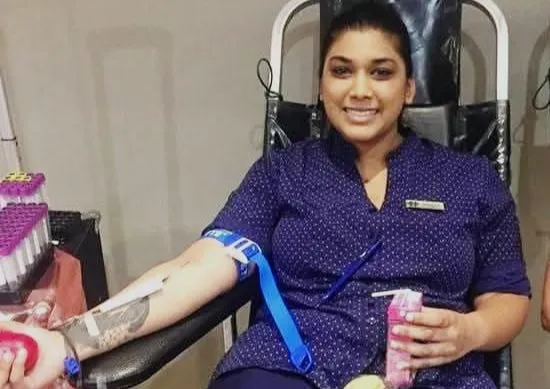“Giving blood is a selfless act”
SAVING LIVES

Deshina Singh.
Image: Supplied
AT AGE 22 and while working in a critical care unit, Deshina Singh, realised the profound impact that becoming a blood donor could have on the lives of those in need of a transfusion.
Singh, now 35, of Tongaat, has since made it her duty to give the “gift of life”.
“I knew about donating blood from a young age, through blood drives at school but I never met the minimum requirements at the time. However, while working at a private hospital in the critical care unit, I saw firsthand how blood can change an individual's health and decided to try again.I have donated ever since and have only missed the years while I was pregnant.”
Singh, a mother of two, added that she and her son also received transfusions.
“The first time I needed a blood transfusion was in 2018 when I gave birth. However, my son also needed a blood transfusion at birth after he was diagnosed with renal complications. He underwent five life-saving operations before he turned seven-months-old.
“My father, who was a cancer patient, also needed an urgent blood transfusion. It was during this time that I saw how dire the need for blood was. During the peak of the Covid-19 pandemic we went through one of the worst blood shortages. It was absolutely heartbreaking," she said.
Singh said becoming a donor was a selfless act.
“I believe donating blood, if possible, is an absolute must. Knowing that you can help save an individual's life is good karma.
“However, I find it hard to understand why many people are against it. I have had many families, friends and colleagues say to me, ‘I am donating for free, ‘In the private sector patients are being charged for the blood’, or ‘Your blood will be used for criminals'.
"My response to this is, yes, while in the private sector patients are charged, it helps the blood bank keep afloat. Without this, how will the South African National Blood Service still be around? How would they run all those successful blood drives that save our loved ones? Also, as much as blood does sometimes go to criminals, that is simply because it is their Constitutional right. Every person deserves equal healthcare treatment irrespective of their race, gender, and believe it or not, having a criminal record. I always try to educate people,” she said.
Singh added over the years, she has also arranged several blood drives.
“My goal is to educate more people on the importance of being a blood donor and the dire need for blood donations in our country. I also share my personal experience on how a blood transfusion helped save my child's life and because someone was kind enough to walk into a blood drive and selflessly donate.”